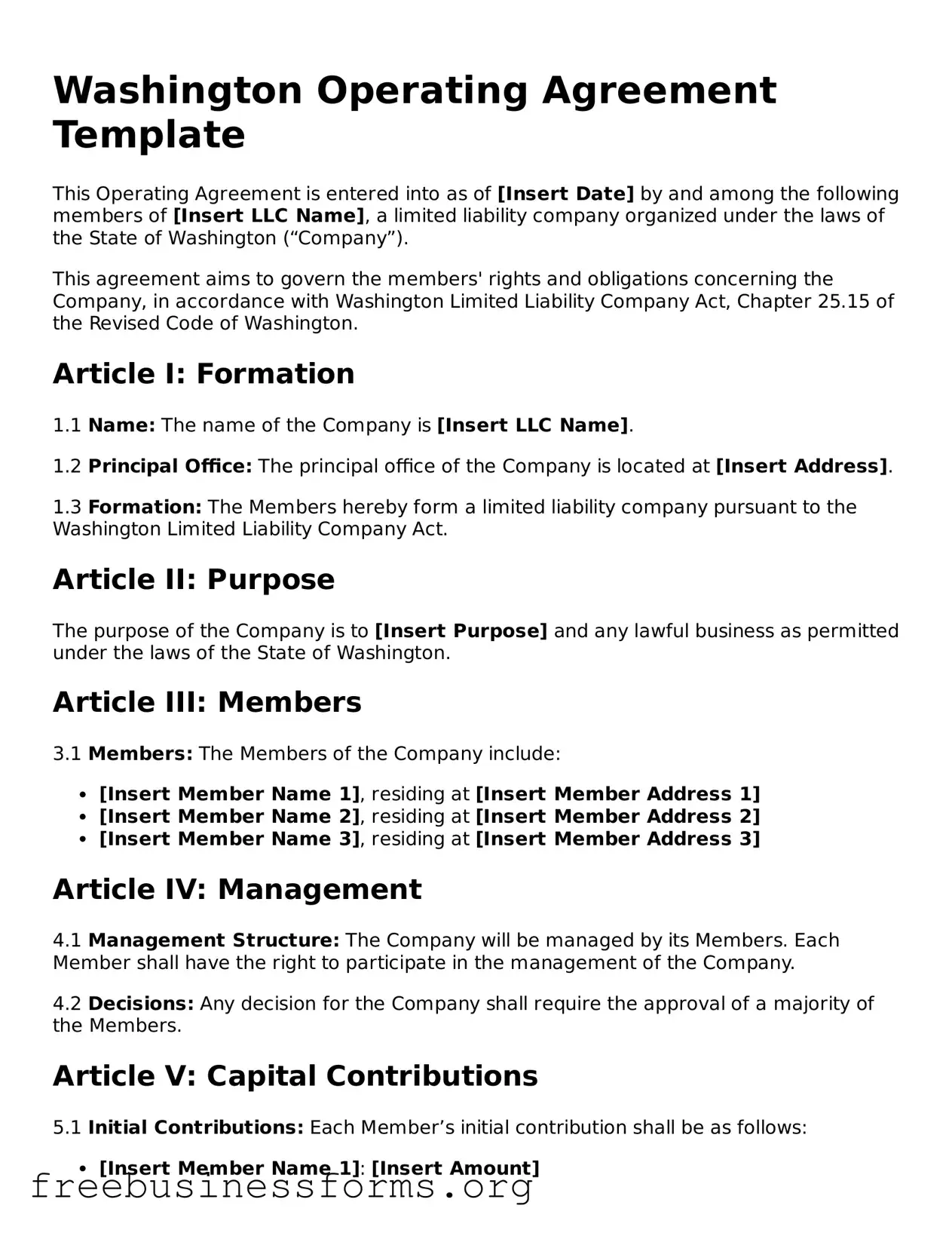Blank Operating Agreement Template for Washington
The Washington Operating Agreement form is a legal document that outlines the management structure and operational guidelines for a limited liability company (LLC) in Washington State. This form serves as a foundational tool for members to define their roles, responsibilities, and the procedures for decision-making within the company. Understanding the components of this agreement is essential for ensuring compliance and fostering a clear business relationship among members.
Open Form Here

Blank Operating Agreement Template for Washington
Open Form Here

Open Form Here
or
↓ PDF File
Quickly complete this form online
Complete your Operating Agreement online quickly — edit, save, download.